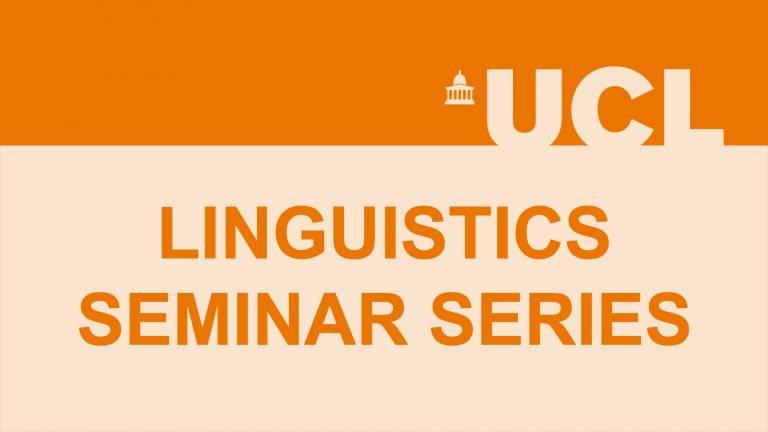Linguistics Seminar Talk - Caroline Heycock
31 January 2024, 3:00 pm–5:00 pm

When to revisit? investigating (un)ambiguity in temporal clauses
Event Information
Open to
- All
Organiser
-
Alina Konradt
Location
-
118Chandler House2 Wakefield StreetLondonWC1N 1PFUnited Kingdom
Talk title: When to revisit? investigating (un)ambiguity in temporal clauses.
Abstract: Ever since the seminal work of Geis in the 1970s, it has been known that temporal adverbial clauses in English (and a number of other languages) show the same kind of ambiguities as also observed in wh-questions and (even more relevantly) relative clauses, so that a sentence like She arrived just when I predicted she would arrive can mean either that her arrival coincided with my act of predicting, or with the time given in the prediction. This follows farily directly from an analysis of such temporal adverbial clauses as a type of free relative clause denoting a definite description of a time, which can be formed syntactically by A’-movement of a temporal operator, or whatever analysis is given to such long-distance dependencies. In this talk I’ll report on work in progress - done in collaboration with Rob Truswel and Elise Newman - on cases of temporal adverbial clauses in English which nevertheless resist this kind of syntactic analysis, including quantified examples discussed in Rothstein (1995), like The dog barked every time the door bell rang. Drawing comparisons also with temporal adverbials in other languages, I’ll explore the possibility that the data motivate a distinction between temporal adverbials that are descriptions of time intervals and those that are descriptions of events, and that this might give us the key to explaining some quite puzzling facts about where we do and don’t find the kind of “Geis-ambiguities” mentioned earlier. This talk reflects an ongoing investigation, and I will very much welcome feedback and suggestions of all kinds.
About the Speaker
Caroline Heycock
at University of Edinburgh
More about Caroline Heycock Close
Close

